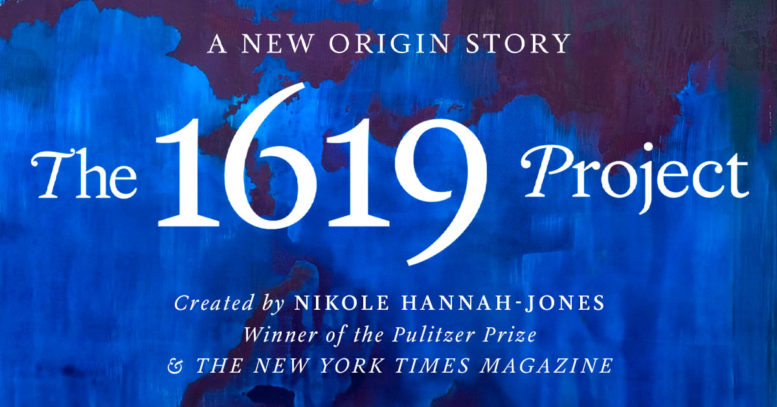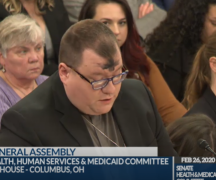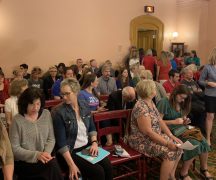By HOLLY MCCALL
You’d have to be completely out of the political loop — and I suspect you aren’t, if you are reading this — to not have heard of “The 1619 Project” and the brouhaha surrounding it.
A publication of journalist Nikole Hannah-Jones and The New York Times, “1619” first appeared in an August 2019 issue of the New York Times Magazine. In May 2020, Hannah-Jones was awarded the Pulitzer Prize for Commentary for her opening essay.
It was in 1619 that African slaves were first brought to America — the year before the Mayflower arrived — and the dust jacket of the expanded book version of the project refers to it as “a new origin story.” 1619, writes Hannah-Jones, is when the real story of America began, not 1776 when the American Revolution began.
I managed to miss out on reading the original version in the Times and I may not have maintained interest in it were it not for former President Donald Trump. Trump introduced many people to the project in September 2020, when he lumped it in with critical race theory, an academic concept many Americans had never heard of before. He called both “a crusade against American history … toxic propaganda, ideological poison that, if not removed, will dissolve the civic bonds that tie us together, will destroy our country.”
I’m one of the people who had never heard of critical race theory before and now that I’m familiar with it, I feel confident telling you that your kids in public school aren’t going to get schooled in it. While “The 1619 Project” has developed a curriculum that can be taught in schools, I also feel confident that wasn’t going to happen in Tennessee schools even before the Tennessee General Assembly passed a law earlier this year banning the instruction of critical race theory.
But I like a challenge and there’s nothing like the president of the United States calling writing “toxic” to make me want to check it out. I bought the book as soon as I could, read it as fast as possible and now I’m here to review it.
There’s been so much sturm and drang over “The 1619 Project” from right wing groups like “Moms For Liberty” and Trump supporters, I was surprised the book didn’t arrive with a big “Trigger warning!” sticker on it. I went into the book with an open mind, frankly expecting to be surprised by historical revelations.
I wasn’t surprised, as much of the book seems to be common sense, but I learned a hell of a lot.
One of the most controversial assertions of Hannah-Jones’ is that slavery was a primary motivation for the American Revolution. Most of us are taught a heroic story of America’s founding, told that a group of upright white men pushed back against the tyranny and unfair taxation of the British Crown.
That’s true, but of course, there is more to the story. The primary writers of the Declaration of Independence, Constitution and Bill of Rights were Virginians who were enslavers. We’ve long known Thomas Jefferson fathered at least six children with an enslaved woman, Sally Hemings, but both George Washington and James Madison also operated plantations with the labor of the enslaved.
Princeton University historian Sean Wilentz was one of a handful of historians to criticize Hannah-Jones’ theory, pointing out that not every man who was part of our Founding Fathers was pro-slavery.
That’s also true, but many of us consider our own well-being when taking measures that may be publicly applauded, and more than one thing can be true. We can agree with Hannah-Jones that a number of America’s early leaders may well have been attempting to protect their own interests by breaking off from England while also acknowledging that wasn’t the only factor.
How else to account for the virulent reaction by colonists to the Dunmore Proclamation, the document through Virginia’s royal governor, John Murray, the Earl of Dunmore, who announced if settlers took up arms against Britain, he’d free all the slaves in the state? It’s not far-fetched to accept Hannah-Jones’ theory that leading Virginians didn’t want to lose access to slave labor but also to acknowledge the settlers may have also been fed up with King George III telling them what to do.
I’m barely scraping the surface of the book and much of its contents are inarguable. Ample studies exist to back up the information in Linda Villarosa’s essay on medicine: the Centers for Disease Control and Prevention released data showing Black Americans were 1.4 times as likely to die of COVID-19, for instance. And no one will be surprised at claims African-American musicians and performers have had an incalculable influence on American culture.
When the pandemic started, I began taking history courses online through the Harvard Extension School for fun and I’ve been reminded over the last 18 months that interpretations of historical events evolve in much the way science does: As we explore our past, our knowledge grows. “The 1619 Project” adds a different and needed interpretation of America’s history to our national discourse: It’s nothing to be feared or vilified.





